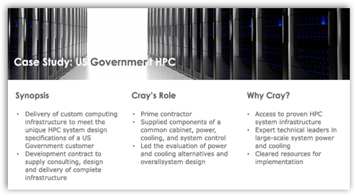Here we have yet one more article about private and government working together but nobody’s writing any formulas, just trying to come up with a a “do and don’t’ do”  list so far with an ultimate goal of saving money. We all know that systems and laws today need IT infrastructure to make them work and provide reporting and some of this has been done but it’s fragmented, like so much in healthcare.
list so far with an ultimate goal of saving money. We all know that systems and laws today need IT infrastructure to make them work and provide reporting and some of this has been done but it’s fragmented, like so much in healthcare.
Heck I wouldn’t want to write those algorithms either and to even take a simple shot at it you need some high tech machine learning technologies if you have any digital literacy about you to realize that’s how massive amounts of data is analyzed and worked today to bring things to a level where decisions can be made and the whole project doesn’t look so over whelming. We have meetings on the topic all over the US and still not much has moved ahead.
AAFP Is The Latest to Recommend CMS to Modify ACO Proposed Rules-Get Some “Kick Ass” Computing Technology to Model and Simulate Some ACO Directives
Now when it comes to technology and the Algorithms, the insurers certainly have the IT infrastructure to do so, but do they want to jump into the frying pan? When that happens greater transparency occurs and then in the process some of their own algorithmic processes can become exposed too and those are proprietary that we don’t get to see, such as the risk analysis scoring for chronic conditions, prior procedures and so forth. It is easier for pre-existing conditions to be covered now but at high prices too so they don’t want o risk the exposure of having to absolutely show how all this is calculated so thus they are not too anxious to jump in here unless they can run the whole data game and be in the driver’s seat.
We simply need some digital laws and better technology to approach this stuff otherwise we  are right where we are today, moving very slow and with tons of additional unintended consequences. There are a lot of common sense things that can be done and many hospitals and providers are doing such with just having their medical records being electronic and being able to see where areas of improvement lie and if this is done without someone bearing down with a set of algorithmic processes and everyone benefits, then that’s a good plan. We cant’ even get through meaningful use yet and those algorithms are up for modifications again too, so again who’s going to write these algorithms?
are right where we are today, moving very slow and with tons of additional unintended consequences. There are a lot of common sense things that can be done and many hospitals and providers are doing such with just having their medical records being electronic and being able to see where areas of improvement lie and if this is done without someone bearing down with a set of algorithmic processes and everyone benefits, then that’s a good plan. We cant’ even get through meaningful use yet and those algorithms are up for modifications again too, so again who’s going to write these algorithms?
If you read the news on the web yesterday there was a very popular article about the diagnosis process now being algorithms, so I’m sure glad I put that word center stage here on this blog 3 years ago to try and help educate those who are not up to date with the way mathematics work so they can at lease have an idea of the process. Shoot we have figureheads all over the place and some make laws that are in denial or are obvious to this point and you can usually bet when they get uncomfortable and don’t want to venture out of their comfort zone, we are going to  hear hours about abortions again, that’s the usual bullets of the digital illiterate today as they are lost and don’t read up and participate. I’m not the only one on the web to say this and have lots of company. BD
hear hours about abortions again, that’s the usual bullets of the digital illiterate today as they are lost and don’t read up and participate. I’m not the only one on the web to say this and have lots of company. BD
SO I COME RIGHT BACK TO WHERE I STARTED FROM – ANYONE GOT GUTS, BRAINS OR ENOUGH TECHNOLOGY TO WRITE SOME ACO ALGORITHMS??
The Centers for Medicare and Medicaid Services should build on existing private sector partnerships with hospitals and physicians when it comes to accountable care organizations rather than implementing measures that could derail those partnerships, said Karen Ignagni, president and chief executive officer of America's Health Insurance Plans, during a press teleconference.
Ignagni said health plans have partnered with providers to develop and participate in alternative payment systems that are transforming the delivery system by offering better care at lower cost. While AHIP supports CMS's effort to reduce the increased fragmentation seen in the delivery of health care services in recent years, some aspects of the agency's proposed rule regarding ACOs would do more harm than good, she said.
Insurance News - AHIP CEO: ACO Program Should Factor in Existing Public-Private Partnerships
Tidak ada komentar:
Posting Komentar